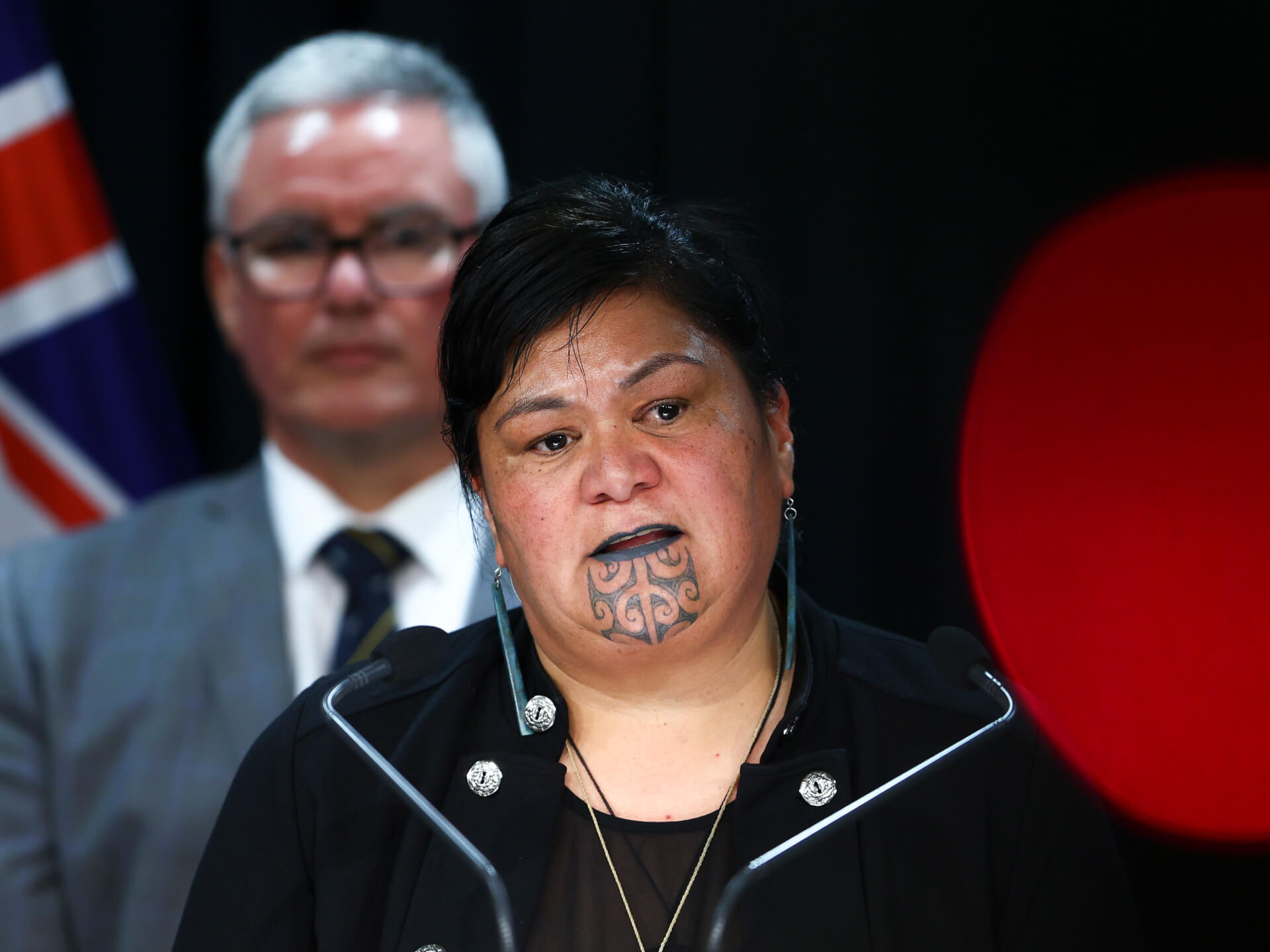New Zealand Foreign Minister Nanaia Mahuta vowed to adopt a “zero tolerance policy” against anti-India elements that seek to misuse the country’s freedoms to divide “communities based on ethnicity and religion.”
During a joint press conference alongside her Indian counterpart S. Jaishankar on Sunday, Mahuta emphasised that New Zealand is a “tolerant”, “inclusive,” and “free society” that does not support divisive elements in the country.
Likewise, the Indian external affairs minister (EAM) warned that governments should be vigilant about “fringe elements” misusing democratic rights and freedoms, particularly when it impacts relations with other countries.
While Jaishankar said his argument was a “general point” and not explicitly aimed at any one country, it comes amid heightened tensions with Canada. New Delhi has raised concern about Ottawa’s inaction on a Khalistan Independence referendum in Brampton as well as religiously motivated attacks by Khalistani extremists on Hindu places of worship.
Sikhs For Justice, the group behind the referendum in Canada, also organised a referendum in the United Kingdom (UK) in 2021. In fact, the UK, too, has recently witnessed violence against Indian diaspora, with intense clashes between Hindu and Muslim communities reported in Leicester, Birmingham, and Smethwick. There have also been acts of vandalism against Hindu temples in the country.
Warm and productive talks with New Zealand Foreign Minister @NanaiaMahuta this afternoon.
— Dr. S. Jaishankar (@DrSJaishankar) October 6, 2022
Two societies, respectful of tradition and culture are seeking to forge a more contemporary relationship. pic.twitter.com/8xdZLunxHF
In New Zealand, meanwhile, India has previously been irked by New Zealand’s decision in December 2020 to allow 1,500 Indian-origin citizens to stage a demonstration in support of the farmers’ protest in India.
Jaishankar is on a week-long visit to New Zealand that started on October 5. Despite minor tensions, his meeting with Mahuta celebrated 70 years of diplomatic relations between the two countries.
Mahuta lauded Jaishankar’s trip as “historic,” noting that it was the first visit by an Indian foreign minister to New Zealand since 2001. Mahuta noted that New Zealand’s decision to reopen its borders has given it a “timely opportunity” to engage with India, noting that there are around 240,000 Indian diaspora in the country, who account for around 5% of the population. She remarked that Hindi is the country’s fifth most spoken language and revealed that the number of Indians could grow even further as the country’s demand for high-skilled labour in the farming and information technology sectors grows.
Mahuta highlighted that India is New Zealand’s 16th largest trade partner and vowed to broaden the partnership. She also revealed that New Zealand is inching towards becoming a member of the International Solar Alliance (ISA), which was formed by India and France and 2015. The two ministers also discussed climate cooperation, with India once again expressing its interest in joining the Global Research Alliance on Agricultural Greenhouse Gases.
Meanwhile, Jaishankar remarked that the pair had discussed working together to “shape” the Indo-Pacific, mitigate the impact of the Ukraine war, and combat other global issues such as climate change.
He also highlighted the need to capitalise on multilateral fora like the ISA and the Coalition for Disaster Resilient Infrastructure.
Concluded my visit to New Zealand.
— Dr. S. Jaishankar (@DrSJaishankar) October 9, 2022
Will work towards making our relationship more contemporary and future ready. pic.twitter.com/E8nBzYtZTP
Jaishankar stressed that India and New Zealand’s partnership is necessary in establishing a “post-colonial order” that is fair, equitable, and incentivises prosperity and stability worldwide.
The Indian EAM also touched on the need to improve air connectivity, noting that there are several Indian students who were forced to leave New Zealand during the COVID-19 pandemic and were unable to renew their visas. He urged his counterpart to expedite the process to allow them to resume their studies in the country.
Pleasure to call on Prime Minister @jacindaardern of New Zealand. Conveyed the personal greetings of PM @narendramodi .
— Dr. S. Jaishankar (@DrSJaishankar) October 6, 2022
Discussed deepening our bilateral cooperation through focused engagement in areas of strength. pic.twitter.com/hY3lECg7P5
During his New Zealand trip, Jaishankar met with Prime Minister Jacinda Arden and opposition leader Christopher Luxon and inaugurated the Indian High Commission Chancery in Wellington.
Jaishankar will next visit Canberra and Sydney, where he will participate in the 13th Foreign Ministers’ Framework Dialogue alongside his Australian counterpart Penny Wong.

